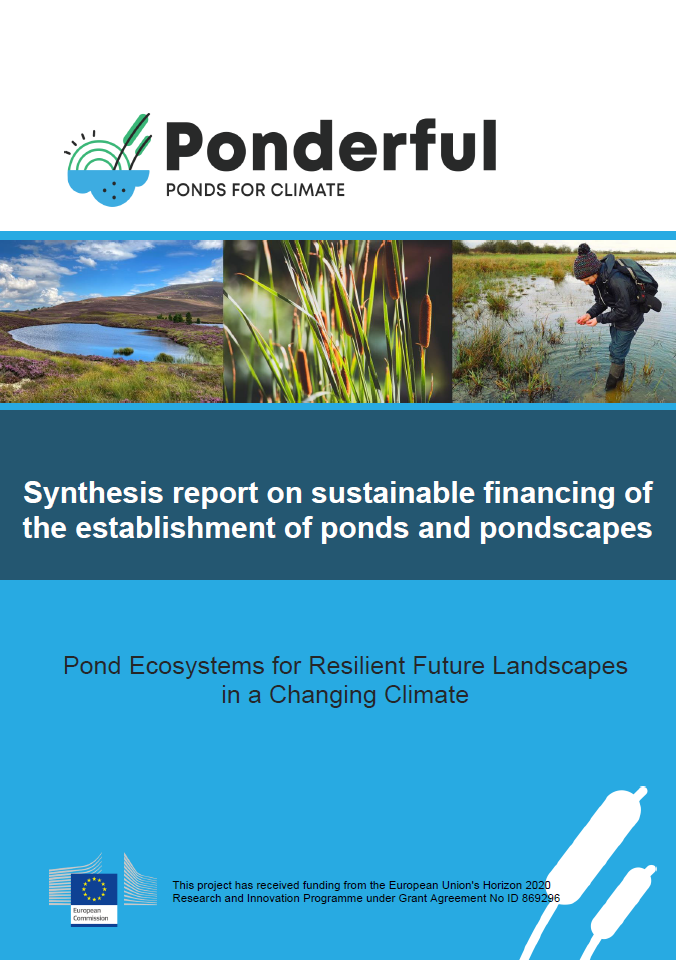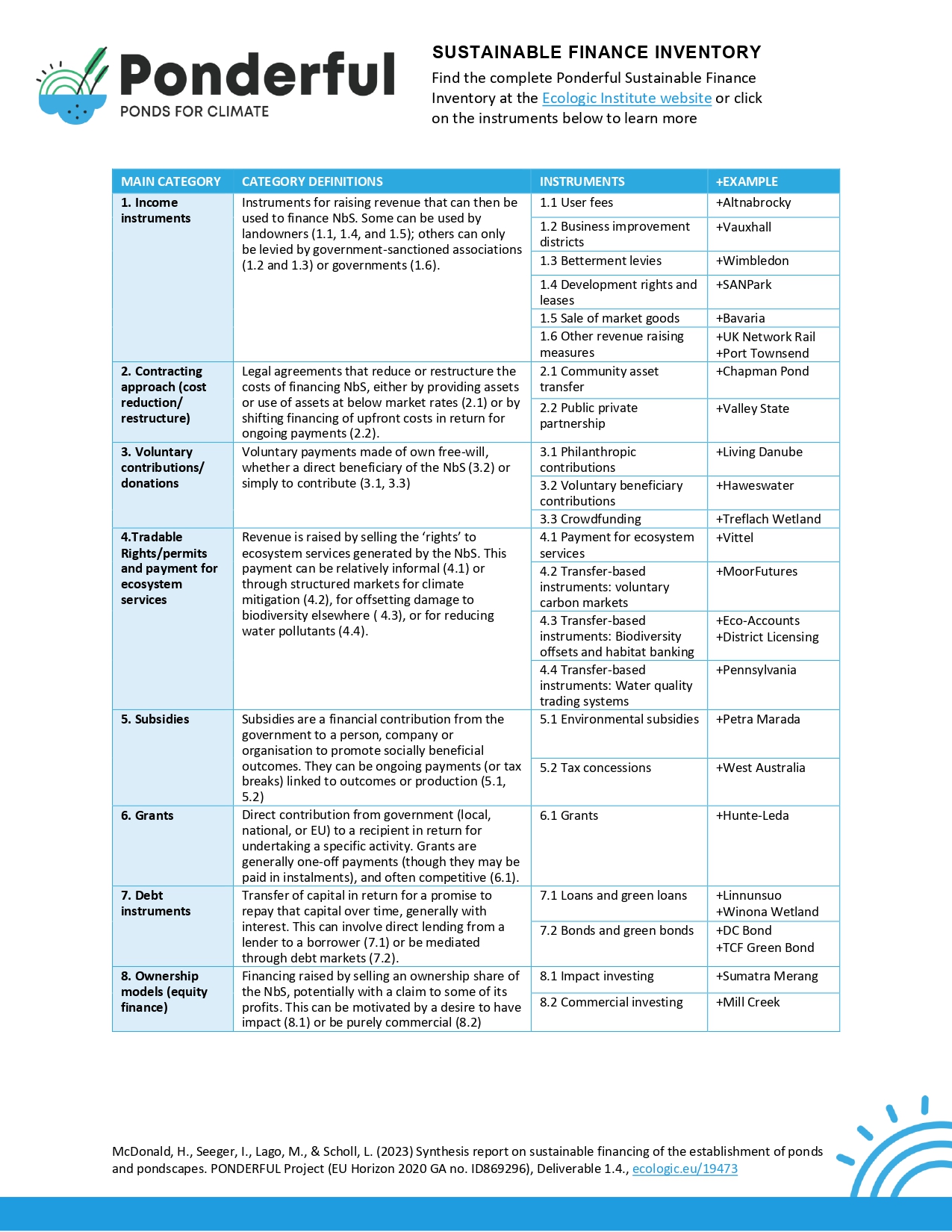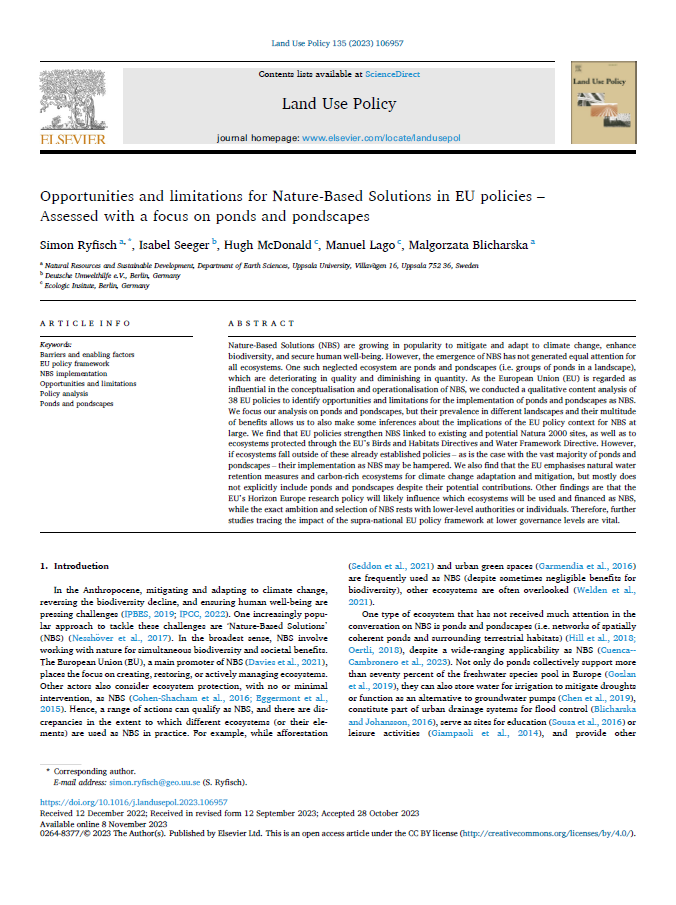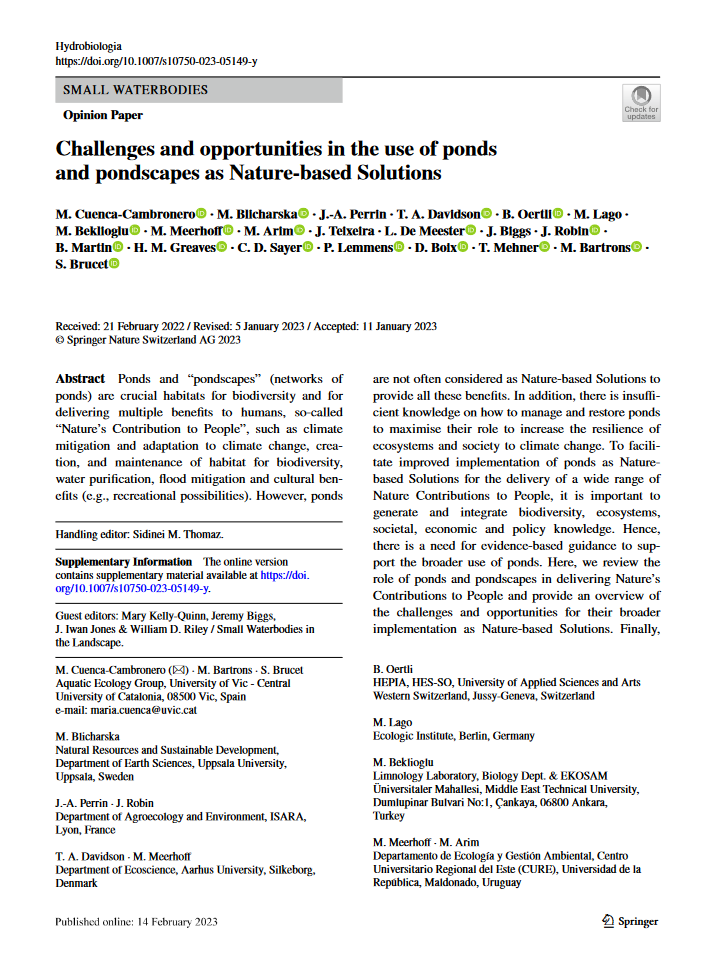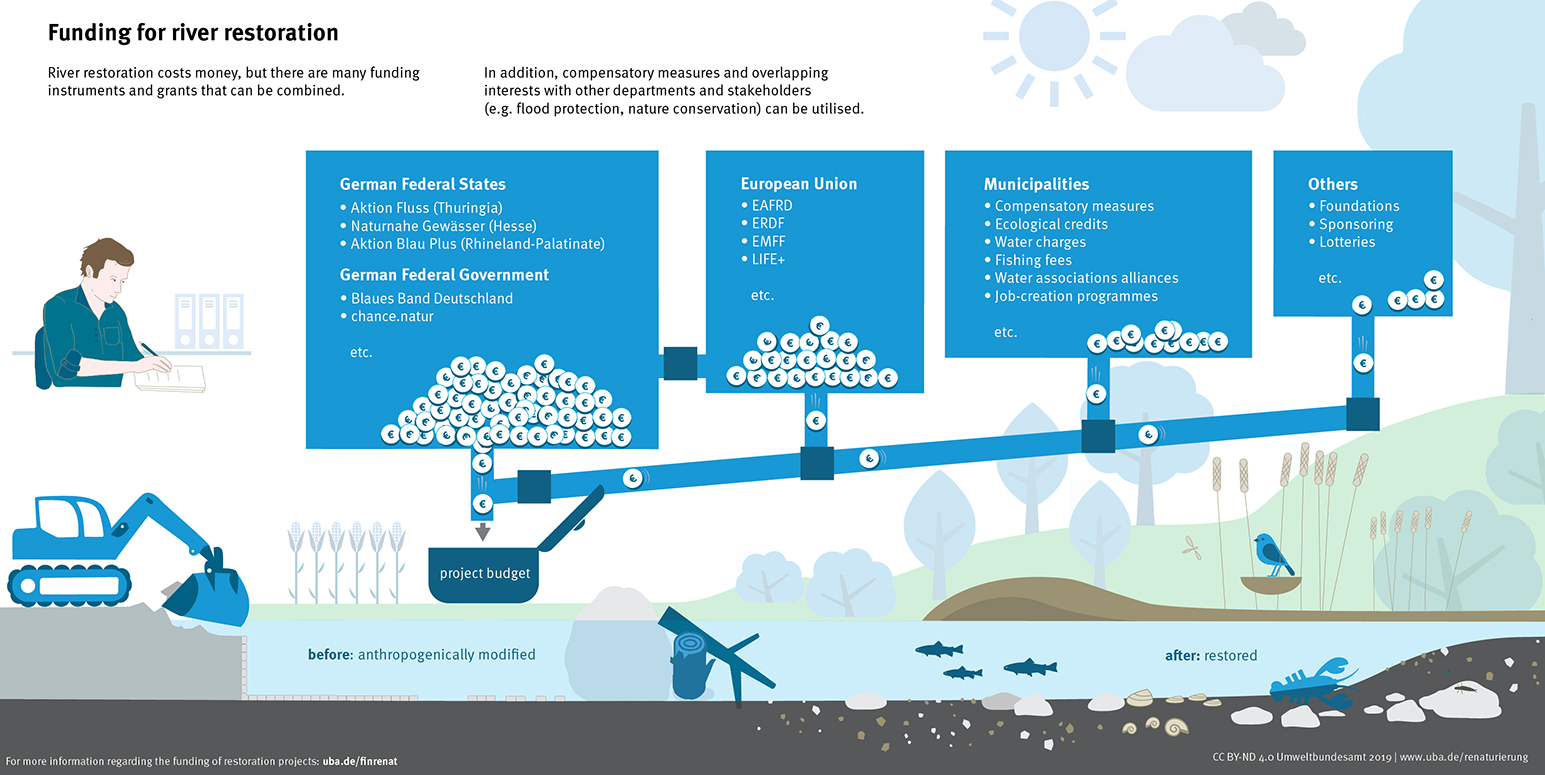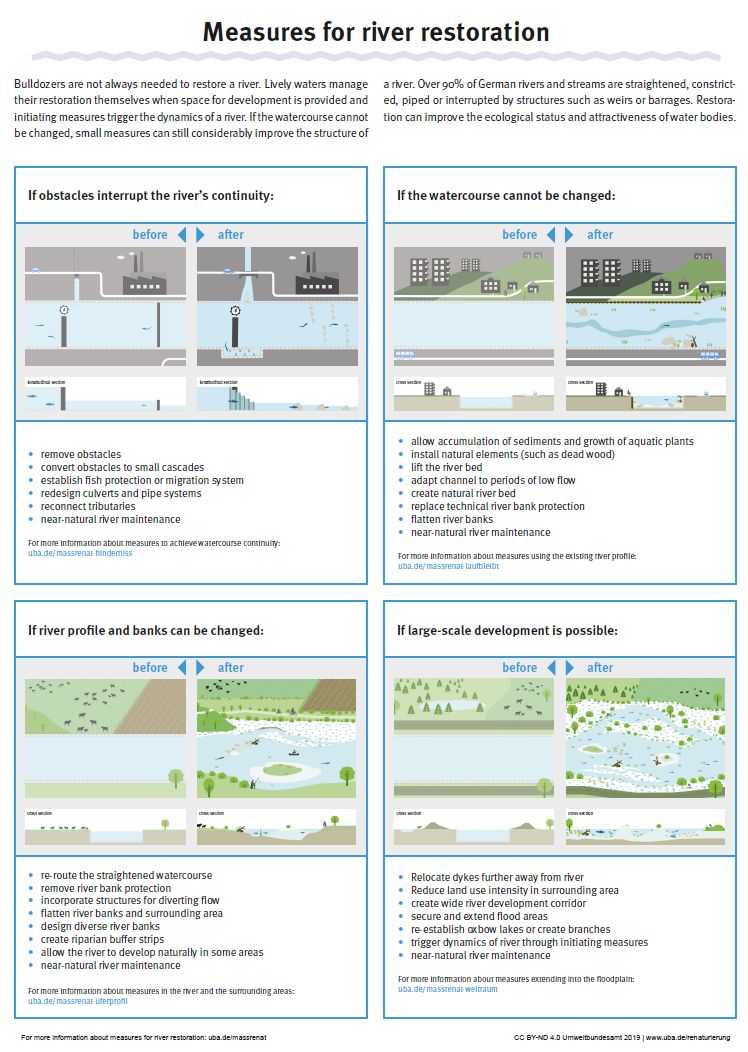Synthesis Report on Sustainable Financing of the Establishment of Ponds and Pondscapes
- Publication
- Citation
McDonald, H., Seeger, I., Lago, M., & Scholl, L. (2023) Synthesis report on sustainable financing of the establishment of ponds and pondscapes. PONDERFUL Project (EU Horizon 2020 GA no. ID869296), Deliverable 1.4.
Ponds and pondscapes (a complex of multiple ponds) can serve as Nature-based Solutions (NbS) that address numerous societal challenges, including the need for climate adaptation, biodiversity enhancement, and water management. Financing has been identified as a key barrier that limits the upscaling of nature-based solutions, including pondscapes. This report aims to address this challenge by supporting pondscape developers to answer a simple question: how can I pay for my pondscape nature-based solution project?
Costs and benefits of pondscapes as nature-based solutions
Ponds generate numerous benefits for society – especially when linked together with varied features in a pondscape. As key sites for biodiversity, they also support recreation and well-being, and enhance climate adaptation by recharging groundwater and tempering floods, among other contributions to people. However, maximising the benefits from creating, restoring, or managing pondscapes incurs financial costs. These include one-off costs, including upfront planning and construction and development costs, as well as ongoing costs, such as maintenance and operation costs.
Financing pondscapes – the PONDERFUL Sustainable Finance Inventory
To support pondscape developers cover the costs of implementing their nature-based solution, this report introduces the PONDERFUL Sustainable Finance Inventory, which consists of a total of 22 financing instruments for nature-based solutions. Each instrument is matched by at least one concrete example of the financing instrument in action. Different financing instruments have different strengths and weaknesses, making them more or less appropriate for different contexts and actors. The Inventory aims to support pondscape developers to understand financing options and identify the finance instruments best suited to their pondscape NbS project.
An online version of the PONDERFUL Sustainable Finance Inventory is available. An Excel-based selection tool supports NbS developers to evaluate their needs and identify appropriate financing instruments.
Financing pondscape nature-based solution – challenges
Financing is a key barrier for nature-based solutions, and this also applies to pondscape implementation. While there is little experience or literature on financing pondscapes, we draw on lessons from the wider nature-based solution literature. Financing nature-based solutions such as pondscapes is difficult: pondscapes primarily generate undervalued public goods, and it is difficult to coordinate multiple actors who enjoy pondscape’s ‘scattered’ benefits. Furthermore, there is an information and knowledge gap due to the difficulty of measuring and valuing benefits and the lack of experience with nature-based solutions within the finance sector. In a follow-up report, we will draw on work with eight pondscape sites across Europe, Turkey, and Uruguay to assess their on-the-ground financing opportunities and challenges.
Upscaling nature-based solutions through private finance will only occur if they are profitable, with income exceeding costs. This will depend on either the development of markets for pond products (including environmental goods such as biodiversity benefits), policy change, or through additional public funding. Our research suggests that other finance options, such as debt or equity finance, will not come before profitability. “Unlocking” private finance of nature-based solutions requires documentation of projects where their effects are clear, and their potential income exceeds cost. Where this is not likely to occur, public funding will remain the key to upscaling.
